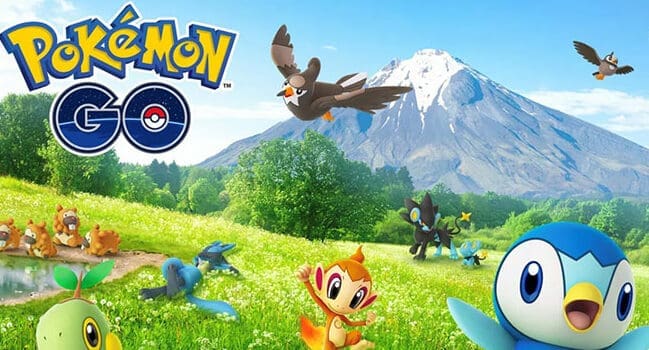 Our world has recently experienced some significant tragedies. We’ve witnessed several racially motivated/anti-police shooting deaths in the U.S., a horrific attack in Nice, France, by a rampaging truck driver, and a failed political coup in Turkey that’s led to thousands of arrests.
Our world has recently experienced some significant tragedies. We’ve witnessed several racially motivated/anti-police shooting deaths in the U.S., a horrific attack in Nice, France, by a rampaging truck driver, and a failed political coup in Turkey that’s led to thousands of arrests.
That’s why it’s been frustrating to watch many people spending enormous amounts of time focused on playing something as insignificant as Pokémon Go.
Niantic’s free-to-play, augmented reality video game was released on July 6 in the U.S., Australia and New Zealand. It is speedily making its way to other countries, and was officially unveiled in Canada on July 17. Millions of people are using it online, and it’s the most popular item in the App Store and Google Play.
Why are we so enamoured with this mobile version of a 20-year-old video game franchise?
It’s obviously a trendy thing to do right now. There is some indirect and direct peer pressure to join the gaming club (or mob, if you like) and play it.
Pokémon Go is a revolutionary video game, too. Unlike older, established multiplayer online games like World of Warcraft, Farmville and Candy Crush, users have to leave their homes to capture the various types of Pokémon virtual characters. If you’re unwilling to physically go outside, you can’t participate.
There have been reports about businesses located on or near the PokéStops and Pokémon gyms (where you can find the Pokémon) witnessing increased profits, as well as the game’s role in helping catch criminals.
Dr. John Grohol, founder of the mental health network Psych Central, told the popular technology blog network Engadget on July 13, “In terms of the phenomena of people expressing the benefits of playing the game to their real-world mental health status, I think that’s very unique and it’s the first time I’ve ever seen anything like that.”
Even if we accept there are some personal and financial benefits, the game’s negatives still far outweigh the positives.
It goes without saying that Pokémon Go is a massive time-waster, similar to Facebook, Twitter, Instagram and Snapchat. People are becoming exceedingly obsessive about playing it during the day and night. Motorists have hit users who were consumed by the game and weren’t paying attention while crossing the street. Hackers have become a problem, and computer viruses are sure to follow. While children are encouraged to go outside and communicate with others, discussing it non-stop with family and friends isn’t the best way to create a social environment. There are also optional game components that cost money . . . so you may want to consider hiding your wallets and purses!
In terms of mental health benefits, we should be careful to put too much stock into this theory.
Stephen Buckley of the mental health charity Mind told The Independent’s Kashmira Gander on July 12: “Getting regular contact with people is also helpful as it can reduce loneliness and boost self-esteem. It is important, however, that gaming does not replace or damage genuine social relationships.”
Oxford University Professor Daniel Freeman, who works in the psychiatry department, was reported as saying, “Clinical tests are needed to prove the potential of augmented reality.” Dr. Suzanne Gage of Bristol University’s School of Experimental Psychology was also “sceptical,” believing the game’s overall effect was “far too early to tell.”
Yes, we all have the freedom to play this game as often or as little as we choose. In time, its popularity will dissipate – and it will be replaced by another augmented reality game with even more bells and whistles.
But will we ever look back at Pokémon Go during this difficult period of time, and claim it had a positive societal impact? I strongly doubt it. It may be a form of escapism, but we shouldn’t be trying to constantly escape the reality we live in.
Michael Taube, a Troy Media syndicated columnist and Washington Times contributor, was a speechwriter for former prime minister Stephen Harper. He holds a master’s degree in comparative politics from the London School of Economics.
The views, opinions and positions expressed by columnists and contributors are the author’s alone. They do not inherently or expressly reflect the views, opinions and/or positions of our publication.


